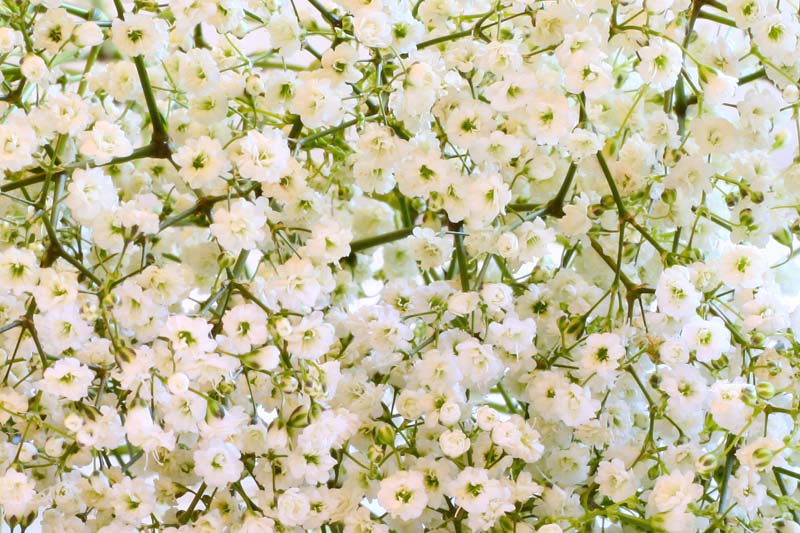Gypsophila
Gypsophila, commonly known as Baby’s Breath, is a genus of flowering plants in the family Caryophyllaceae, consisting of over 100 species. These plants are native to Eurasia, Africa, Australia, and the Pacific Islands, and are highly prized for their delicate, airy appearance, which adds a soft, romantic touch to gardens and floral arrangements.
Habit and Hardiness:
Baby’s Breath species exhibit a range of growth habits, from compact annuals to sprawling perennials. Most species have a bushy, branching growth habit, with some reaching heights of up to 4 feet (1.2 meters) and spreads of up to 3 feet (0.9 meters). Gypsophila plants are typically frost-tolerant, with many perennial species hardy in USDA zones 3-9. Annual species, such as Gypsophila elegans, complete their life cycle within one growing season and are not frost-tolerant.
Flowers:
Baby’s Breath produces an abundance of small, star-shaped flowers that form dense, cloud-like clusters. Depending on the species, flower colors can range from white to pink, with some cultivars displaying double flowers. The delicate, airy appearance of Gypsophila flowers makes them a popular choice for wedding bouquets, boutonnieres, and flower arrangements, as they add a touch of elegance and softness to any design.
Blooming Season:
The blooming season for Gypsophila species varies depending on the specific plant but generally occurs from late spring to early fall. Many Gypsophila species are long-blooming, continuously displaying flowers throughout the growing season.
Uses and Benefits:
Gypsophila plants are versatile, offering a range of uses and benefits in both gardens and floral designs. Gypsophila species make excellent additions to flower beds, borders, and rock gardens, where their delicate blooms create a sense of depth and texture. The plant’s airy, cloud-like clusters of flowers make them a popular choice for floral arrangements, as they add a soft, romantic touch and complement other flowers in the design.
By incorporating Gypsophila plants into your garden or floral designs, you can enjoy the many benefits they offer while adding a touch of delicate beauty and romantic charm.
However, it is essential to note that some species of Gypsophila, including Gypsophila paniculata, can be invasive in certain regions. It is crucial to check with your local gardening center or extension office to ensure that the species is not invasive in your area before planting.

